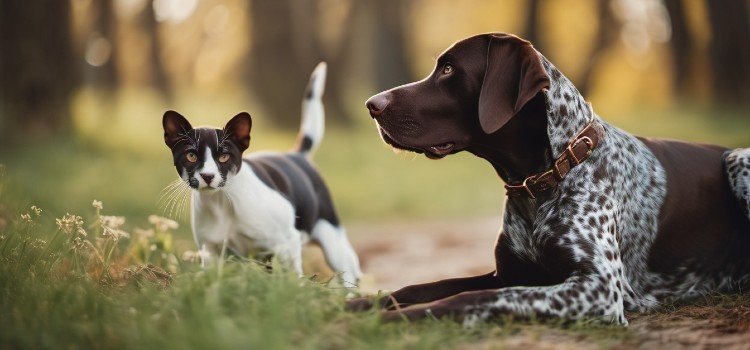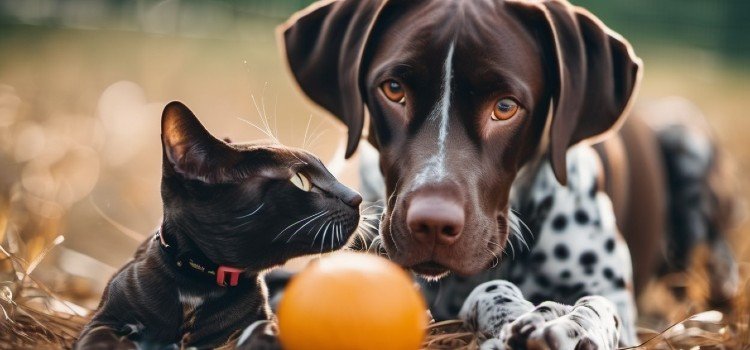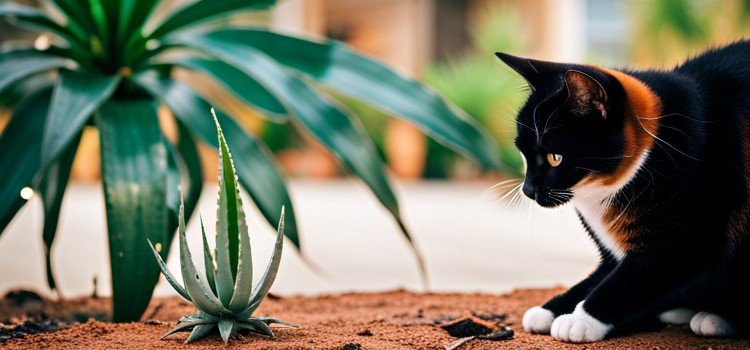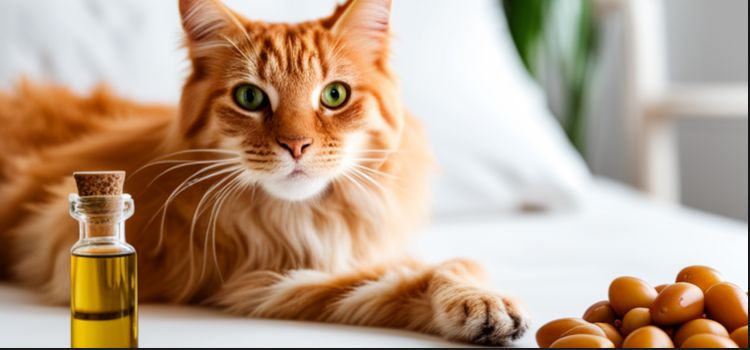As an Amazon Associate committed to the mission of improving the lives of our readers, Live-Clear.com receives a small commission from eligible purchases made through our affiliate links. This revenue enables us to keep producing insightful articles and other material.
German Shorthaired Pointers can be good with cats, but proper introductions and training are crucial. If introduced and raised together from a young age, GSPs can live harmoniously with cats.
However, it is important to note that individual dog and cat personalities and temperaments will play a significant role in their compatibility. Additionally, early socialization and consistent positive reinforcement training are essential for fostering a peaceful coexistence between cats and GSPs.

Proper supervision and creating a safe environment with separate spaces for the cat and dog to retreat to is also key in ensuring a successful relationship between the two.
Understanding German Shorthaired Pointers
German Shorthaired Pointers can coexist peacefully with cats if introduced properly and given appropriate training. Highly energetic and versatile dogs require socialization and supervision to ensure a smooth and safe interaction with feline companions.
German Shorthaired Pointers, or GSPs, are versatile and intelligent breeds that make excellent companions. Suppose you’re considering adding a GSP to your family. In that case, it’s essential to understand their breed characteristics, temperament and personality traits and the importance of socialization and training. This will ensure a harmonious coexistence between your GSP and any furry friends you may have, including cats. Let’s delve into these aspects further.
Breed Characteristics
German Shorthaired Pointers are a medium to large-sized breed with a sleek and athletic build. They have short coats in various colours, such as liver, black, or a combination of both. GSPs are renowned for their webbed feet, which assist them in being excellent swimmers. They have a distinctive head shape with expressive eyes that display their keen intelligence.
With an average lifespan of 12 to 14 years, GSPs are generally healthy dogs, but like any breed, they may be prone to certain genetic health conditions. Regular exercise and a balanced diet are essential for keeping them fit and happy.
Temperament And Personality Traits
GSPs are known for their friendly, affectionate, and loyal nature. They form strong bonds with their families and thrive on human companionship. These dogs are highly trainable and eager to please, making them an excellent choice for owners who want a dog that excels in obedience and agility. GSPs are renowned for their exceptional hunting abilities, as they were initially bred as versatile hunting dogs.
Due to their strong prey drive, it’s crucial to properly socialize them from a young age to ensure they coexist harmoniously with other animals, including cats. With proper training and socialization, GSPs can form strong bonds with cats and live peacefully together.
Socialization And Training
Socialization ensures a positive relationship between a GSP and other animals, including cats. Early and ongoing socialization exposes the GSP to various environments, people, animals, and situations. This helps them develop good manners, adaptability, and appropriate behavior towards other animals. When training a GSP, positive reinforcement techniques work best. Reward-based training methods like treats, praise, and playtime help reinforce good behavior and strengthen the bond between you and your GSP. Consistency, patience, and a firm but gentle approach will yield the best results.
In conclusion, German Shorthaired Pointers can coexist peacefully with cats with proper socialization and training. Their friendly nature, intelligence, and versatility make them adaptable to various living situations. With the proper guidance and care, these dogs can become trustworthy companions for feline friends. So, if you’re considering adding a GSP to your family, rest assured that they are a breed capable of fostering harmonious relationships with cats!

Cat-friendly Traits Of German Shorthaired Pointers
German Shorthaired Pointers, known for their keen hunting abilities, can sometimes leave potential cat owners wondering if these energetic dogs are suitable companions for their feline friends. However, when properly introduced and trained, German Shorthaired Pointers can display several cat-friendly traits that make coexistence possible. Let’s delve into these characteristics below:
Natural Hunting Instincts
German Shorthaired Pointers possess a natural hunting instinct from their breed’s history as versatile hunting dogs. While their hunting instincts may raise concerns initially, it’s essential to understand that these instincts can be managed and redirected towards appropriate outlets through training and socialization.
To prevent any potential conflicts with cats, it is crucial to introduce German Shorthaired Pointers to cats at a young age. This early socialization helps them understand that cats are part of the family, not prey. Consistent positive reinforcement and reward-based training methods can reinforce desired behaviors and minimize chase or prey-driven tendencies.
Ability To Coexist With Other Pets
Despite their hunting heritage, German Shorthaired Pointers can coexist with other pets, including cats. Their friendly and adaptable nature allows them to form strong bonds and develop harmonious relationships with cats and other animals in the household.
German Shorthaired Pointers are known for being highly trainable, which plays a crucial role in establishing positive interactions with cats. Early obedience training sessions on socialization and teaching basic commands ensure these dogs learn to respect boundaries and behave appropriately around their feline companions.
In addition to training, proper supervision is essential when introducing German Shorthaired Pointers to cats. Slow and gradual introductions, initially through scent swapping and supervised visual interactions, can help establish trust and reduce potential anxiety or fear between the two species.
With time and patience, German Shorthaired Pointers can learn to coexist peacefully with cats, creating a harmonious and enriched environment for both animals in the household.
Potential Cat-Friendly Behavior
While it’s important to remember that individual personalities and temperaments may vary, German Shorthaired Pointers have the potential to be cat-friendly, given proper training, socialization, and structured introductions. By understanding their natural hunting instincts and utilizing positive reinforcement techniques, these versatile dogs can establish loving and respectful relationships with cats, bringing joy and companionship to both pets and their owners.
Considerations When Introducing A GSP to Cats
Introducing a German Shorthaired Pointer (GSP) to a cat household requires careful consideration and planning. While GSPs are generally friendly and adaptable, each situation is unique and requires individual attention to ensure a smooth integration. Here are some essential considerations to consider when introducing a GSP to cats.
Assessing The Cat’s Personality
Before introducing a GSP to your cat, assessing your cat’s personality and comfort level with new animals is crucial. Some cats are more outgoing, while others may be more reserved and cautious. Observe how your cat reacts to other animals. If they have had positive experiences, this can be an encouraging sign.
It is important to note that some cats may be anxious or aggressive towards unfamiliar animals, creating tension during the introduction. In such cases, consider seeking advice from a professional animal behaviorist or veterinarian for guidance on how to proceed.
Gradual Introduction And Supervision
A gradual introduction is vital when bringing a GSP into a cat household. Slowly introduce the two animals to each other under controlled conditions, allowing them to become familiar with each other’s scents and presence.
Start by keeping the pets separated but within sight, using a baby gate or a closed door to provide a physical barrier. This will allow them to observe and become accustomed to each other’s presence without direct contact.
Over time, you can progress to supervised face-to-face interactions with both the GSP and the cat on leashes. This controlled environment allows for increased interaction while minimizing the risk of any sudden confrontations or injuries.
Providing Safe Spaces For Both Pets
Another crucial consideration when introducing a GSP to cats is to provide safe spaces for both pets. Cats, in particular, value having vertical spaces to retreat and observe their surroundings.
Ensure your cat has access to high perches, shelves, or cat trees to escape if they feel overwhelmed or want to be alone. Additionally, have separate spaces for each pet, such as separate sleeping areas or designated rooms, where they can have time apart and feel secure.
Supervision is vital during the initial stages and ongoing, as it allows you to redirect any potentially harmful behaviors or intervene if necessary. With patience, proper introductions, and safe spaces, a GSP and a cat can coexist harmoniously and become companions.

Training And Socialization Techniques
Proper training and socialization techniques are crucial for ensuring a harmonious coexistence when introducing a German Shorthaired Pointer (GSP) into a household with cats. Implementing positive reinforcement training, desensitization to cats, and managing prey drive are vital strategies to facilitate a peaceful and safe environment for both your GSP and your feline companion.
Positive Reinforcement Training
Positive reinforcement training is an effective method for teaching a GSP to associate with cats positively. This technique involves rewarding good behaviour and ignoring unwanted behaviour, which helps establish a strong bond and trust between your dog and cat.
When your GSP displays calm behavior around your cat, reward them with treats or praise. This positive reinforcement reinforces their understanding that being calm and gentle around the cat is desirable behavior. Be consistent with the rewards, using them every time your GSP exhibits the desired behavior, and soon they will associate the cat’s presence with positive experiences.
Desensitization To Cats
Desensitization involves gradually exposing your GSP to the presence of cats in a controlled and positive way. This technique helps them become accustomed to the sight, smell, and proximity of cats, reducing the likelihood of aggressive or anxious behavior.
Start by allowing your GSP to observe the cat from a distance, keeping them on a leash to maintain control. Reward them for calm behavior during these observations. Gradually decrease the distance between your GSP and the cat until they coexist peacefully in the same room.
Managing Prey Drive
German Shorthaired Pointers have a natural prey drive, which means they may view cats as potential targets. It is essential to manage and redirect this instinct to prevent any harm to your cat.
Keep your GSP engaged in regular mental and physical exercise to help release excess energy and divert their attention away from chasing the cat. Please provide them with interactive toys and puzzles stimulating their natural hunting instincts, such as treat-dispensing or scent games. This redirecting of their prey drive helps create a more harmonious environment for your GSP and cat.
Supervision is crucial during the initial stages of introducing your GSP to your cat. Gradually increase their exposure to each other under controlled circumstances while implementing positive reinforcement training and desensitization techniques. With consistency, patience, and proper training, German Shorthaired Pointers can coexist peacefully with cats.
Signs Of Positive Interaction Between German Shorthaired Pointers And Cats
Are German Shorthaired Pointers good with cats? This is a common question among pet owners considering adding a GSP and a cat. While breeds can inherently differ in their compatibility with cats, there are specific signs you can look out for to determine whether your German Shorthaired Pointer is getting along well with your feline companion. Understanding these signs will help create a harmonious environment for both pets, promoting their overall well-being and happiness.
Relaxed Body Language Of German Shorthaired Pointers Good With Cats
A relaxed body language indicates positive interaction between German Shorthaired Pointers and cats. When your GSP and cat are comfortable around each other, they will display open body postures, relaxed muscles, and friendly expressions. A GSP with a relaxed body will have a loose and wagging tail, soft eyes, and a relaxed, slightly open mouth. Your cat may show signs of contentment by having their tail held high, their ears facing forward, and their body posture calm and relaxed. These relaxed body signals indicate that both pets feel safe and at ease in each other’s presence.
Playful Interactions For German Shorthaired Pointers Good With Cats
Playful interactions between German Shorthaired Pointers and cats can be a delightful sight to witness. When your GSP and cat engage in play together, it showcases a positive bond and mutual enjoyment. Your pets may participate in chase games, gentle pawing, or play-fighting with their paws and mouths. Both the German Shorthaired Pointer and the cat will exhibit excitement and enthusiasm during playtime. It’s important to remember that play should always be supervised to ensure safety for both your GSP and cat.
Sharing Spaces Comfortably With German Shorthaired Pointers Good With Cats
When your German Shorthaired Pointer and cat can share spaces comfortably, it’s a positive sign of their growing compatibility. This includes moments when they relax near each other, sleep in the same room, or calmly occupy the same territory without any signs of aggression or tension. Sharing spaces comfortably indicates that both pets have reached a level of acceptance and trust in each other’s presence.
Keeping an eye out for these signs of positive interaction between your German Shorthaired Pointer and your cat is crucial in fostering a healthy and harmonious relationship between them. Remember to give them time to adjust and supervise their interactions to ensure their safety and well-being. With patience and proper introductions, a GSP and a cat can become great companions, providing endless joy and entertainment for your whole family.

Addressing Challenges And Potential Issues
German Shorthaired Pointers can be good with cats, but it depends on their training and socialization. Proper introduction and supervision can help address any potential challenges and issues that may arise between the two pets.
Aggression Or Chasing Behavior Of German Shorthaired Pointers Good With Cats
German Shorthaired Pointers (GSPs) are energetic and highly active dogs known for their hunting skills. While they generally have a friendly and sociable nature, some GSPs may exhibit aggression or chasing behavior towards cats. This behavior can stem from their strong prey drive and hunting instincts. It is important to address these challenges and potential issues to ensure a harmonious coexistence between your GSP and your feline companion. To tackle aggression or chasing behavior in GSPs towards cats, it is crucial to implement proper behavior modification techniques. Consistency, positive reinforcement, and training are key elements in redirecting their focus from chasing or being aggressive towards cats.
One effective method is to use reward-based training, where you reward your GSP for calm and non-reactive behavior in the presence of cats. Gradually expose your GSP to controlled interactions with a cat, always ensuring the safety of both animals. Consistency in training will help create new positive associations and reduce their instinctual response to chase or show aggression towards cats.
Implementing Behavior Modification For German Shorthaired Pointers Good With Cats
When addressing aggression or chasing behavior in GSPs, implementing behavior modification techniques is essential. Follow these steps to gradually modify your GSP’s behavior:
- Start with controlled environments: Begin training sessions in a controlled environment with the presence of a cat, preferably using a leash and muzzle to ensure safety. Gradually decrease the level of control as your GSP learns to respond appropriately.
- Positive reinforcement: Use treats, praise, and rewards to reinforce calm, non-reactive behavior. When your GSP remains calm in the presence of a cat, reward them immediately to reinforce the positive association.
- Redirect their focus: Engage your GSP in activities that redirect their focus away from chasing or being aggressive towards cats. Mental stimulation through puzzle toys or interactive games can help channel their energy into more appropriate behaviors.
Seeking Professional Help Regarding German Shorthaired Pointers Good With Cats
In some cases, addressing aggression or chasing behavior in GSPs may require professional help. If you are unable to make significant progress in modifying your GSP’s behavior towards cats, it is advisable to seek assistance from a professional dog trainer or veterinary behaviorist. These experts can provide specialized guidance and techniques tailored to your specific situation.
Remember that every dog is unique, and the time it takes to modify their behavior may vary. Patience, consistency, and positive reinforcement are crucial throughout the training process. With proper training and guidance, many GSPs can learn to coexist peacefully with cats.

Conclusion
To sum up, German Shorthaired Pointers can generally maintain a positive relationship with cats if introduced properly. Their friendly nature and willingness to please make them adaptable and trainable companions. However, it is important to remember that individual dog and cat temperaments may vary, so it is crucial to supervise their interactions initially.
Frequently Asked Questions On Are German Shorthaired Pointers Good With Cats
Yes, German Shorthaired Pointers can coexist with cats if properly introduced and socialized from a young age.
Yes, German Shorthaired Pointers have a natural hunting instinct, but it can be managed through training and socialization.
Introduce them slowly, keeping them in separate rooms initially and gradually allowing supervised interactions to establish a positive relationship.
Yes, it’s important to provide safe spaces for the cat to escape to, supervise their interactions, and never force them to be together if they are showing signs of aggression or fear.
Signs of a positive relationship include calm behavior, playing together, sniffing without aggression, and sharing common spaces without conflict.
With patient introductions and proper socialization, the chances of a harmonious coexistence between German Shorthaired Pointers and cats are high.
Amazon and the Amazon logo are trademarks of Amazon.com, Inc, or its affiliates.



